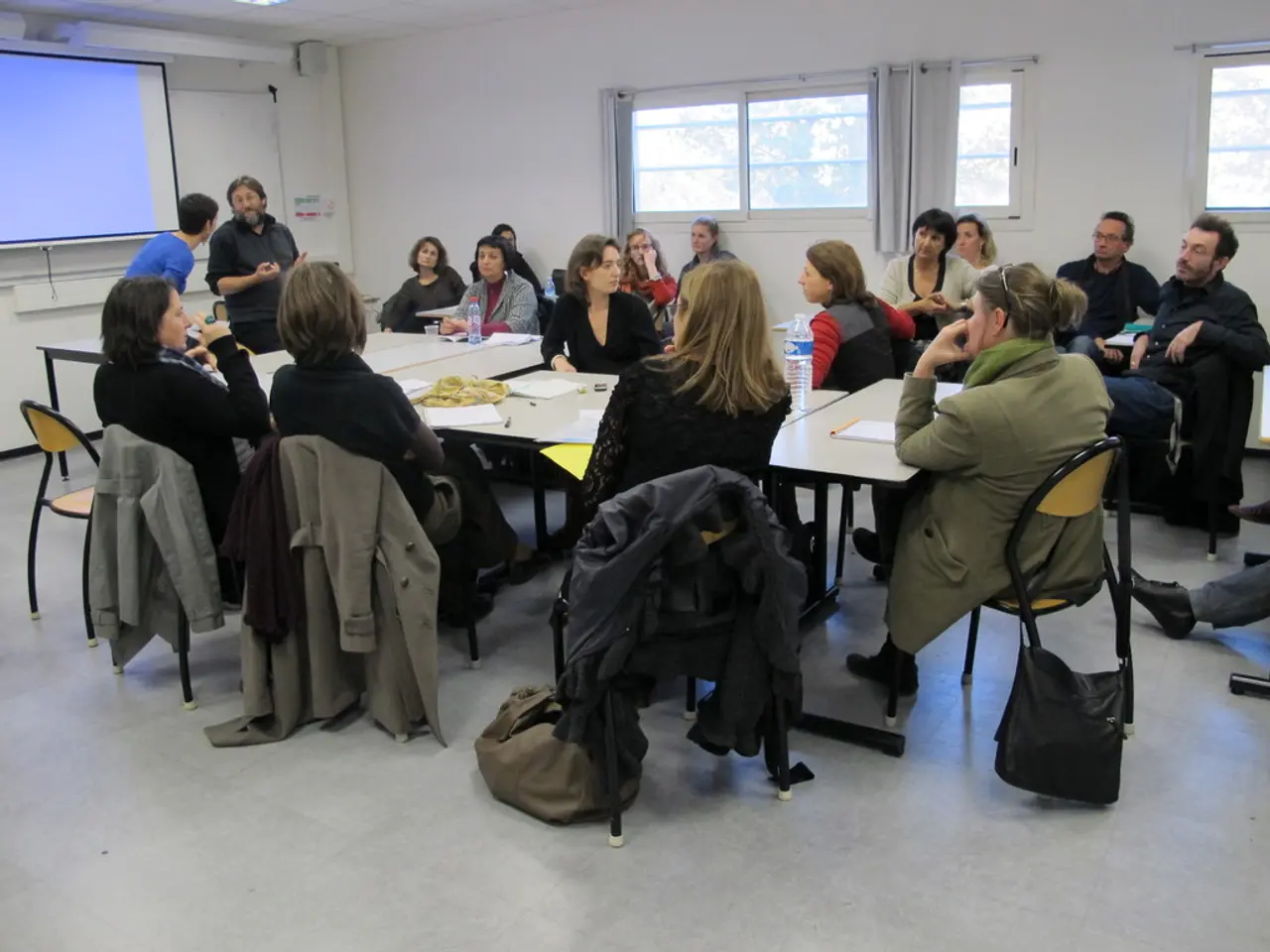WhyYou Lack a Social Circle Similar to the One in the TV Show "Friends"
In the world of television, friendships often shine brightly, with characters like Chandler, Joey, Ross, Rachel, Monica, and Phoebe from Friends serving as the ideal of camaraderie and companionship. However, for many individuals, real-life friendships may not always measure up to these media portrayals, leading to unrealistic expectations and potential disappointment.
A recent study suggests that to build and maintain real friendships in adulthood, one should focus on authentic connection, consistency, and patience. Real friendships develop through repeated, genuine interactions where vulnerability and curiosity play key roles, rather than idealized expectations shaped by media portrayals.
To nurture these connections, several strategies can be employed. Showing up consistently in social settings such as interest-based groups, professional networks, or community events can help foster organic connections over time. Being genuinely curious and open by asking questions, actively listening, and sharing one's own experiences and vulnerabilities cultivates trust and deepens bonds.
Hosting casual gatherings, such as coffee meetings or game nights, can create low-pressure opportunities for connection and community building. It's important to avoid assumptions and fantasies about how friendships "should" look, instead accepting people as they are, recognizing that friendships evolve and sometimes involve difficult conversations to grow closer.
Taking inventory of existing connections and reconnecting with people from one's past can also be beneficial, rather than constantly searching for new "perfect" friends. Finding friends through shared interests—joining clubs, classes, or volunteering—brings together people with common passions, making authentic connection easier.
Building real friendships involves work and a gritty, no-BS plan. It's important to be patient and realistic, understanding that forming deep friendships often requires significant time investment. Practicing emotional intelligence and long-term thinking, focusing on maintaining good terms and respecting boundaries instead of pleasing everyone or expecting TV-like perfection, can help foster meaningful and lasting relationships grounded in reality.
In summary, cultivating real adult friendships means embracing imperfection, investing time, and prioritizing authentic, consistent interaction over media-inspired idealizations or comparisons. This approach fosters meaningful and lasting relationships grounded in reality, rather than the unattainable standards set by popular television shows.
It's essential to remember that friendships are gifts, not given, and should be appreciated, treasured, and worked at. So, whether you're longing for a Central Perk gathering spot or just seeking to connect with like-minded individuals, remember that authentic relationships take time, effort, and a commitment to genuine interaction.
References:
- Gottman Institute
- Harvard Business Review
- The Atlantic
- Psychology Today
- Forbes
- To cultivate genuine friendships in adulthood, it's crucial to prioritize authentic interactions, consistency, and patience,, focusing on building connections through shared interests, such as education-and-self-development and personal-growth classes or clubs, instead of comparing real-life relationships to idealized portrayals in media and television.
- In striving for meaningful, long-lasting relationships, living a lifestyle focused on relationship-building practices like active listening, emotional intelligence, and maintaining good terms is more valuable than chasing unattainable standards set by television, encouraging growth and deepening bonds in our real-life relationships.




